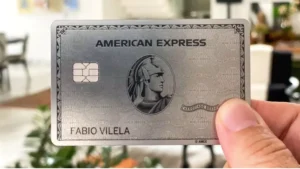Credit Card vs. Debit Card: Which One Is Best for You? The answer depends on individual financial habits and goals, but understanding the core differences is crucial. Credit cards offer rewards and build credit history but can lead to debt, while debit cards help with budgeting but provide less fraud protection. Notably, debit card users can be liable for up to $500 in fraudulent charges if not reported within two days, whereas credit cards often offer zero liability.
In this article, you will learn:
- Credit cards allow you to borrow funds from the issuer, while debit cards draw directly from your checking account.
- Reporting debit card fraud after two business days but within 60 days could make you liable for up to $500.
- Many credit cards offer rewards programs such as cashback or points redeemable for travel.
- A common daily ATM withdrawal limit for debit cards is $500, though this can vary by bank and account type.
- Credit card companies typically offer zero liability for unauthorized purchases if reported promptly.
- Using a debit card helps with budgeting by limiting spending to the funds available in your checking account, preventing overspending and debt accumulation.
What are credit cards and debit cards, and how do they work?
Credit and debit cards both offer convenient ways to make purchases, but they function quite differently.
When you use a credit card, you’re essentially borrowing funds from the card issuer to cover your expenses. You’ll need to repay that amount later, and if you carry a balance, interest and fees may apply. Credit cards offer a revolving line of credit, allowing you to spend, repay, and spend again, as long as you stay within your credit limit. Many credit cards also offer rewards programs, such as cashback or points, incentivizing their use for everyday purchases.
A debit card works differently. Instead of borrowing, it draws money directly from your checking account. The moment you make a purchase, the funds are deducted from your balance, similar to paying with cash. Debit cards are widely accepted and provide a simple way to manage your finances by limiting spending to the funds available in your account.
Both cards typically feature a 16-digit number that links to your account and helps process transactions. They also often include an expiration date and a security code (CVV) to ensure secure online purchases.
In essence, debit cards use your existing funds, while credit cards allow you to spend now and settle the bill later. This fundamental difference impacts your spending habits, financial planning, and potential for accruing debt.
How do credit cards impact your credit score, and what rewards do they offer?
Using a credit card wisely is an effective way to build a solid credit history. Making small purchases each month and paying them off promptly can positively impact your credit score, demonstrating responsible credit management to lenders.
Beyond credit building, many cards offer added benefits to reward cardholders. These benefits can include cash back on everyday spending, points redeemable for travel or merchandise, and extras like travel insurance or access to airport lounges.
However, it’s crucial to manage your card carefully. Maxing out more than 30% of your available credit or missing payments can damage your credit score. To maintain good credit, stay well below your credit limit and always pay your bill on time, establishing a pattern of responsible borrowing.
How are debit cards linked to checking accounts, and what are their transaction limits?
Debit cards are directly linked to your checking account, meaning purchases are immediately deducted from your available balance. This direct connection limits your spending to the funds you currently hold in your account.
If your account balance is insufficient, the bank will typically decline the transaction or charge an overdraft fee, which can range from $25 to $35 per occurrence.
Most banks also impose daily withdrawal limits on ATM transactions. While the specific amount can vary depending on the bank and your account type, a common daily limit is $500. Some accounts may allow for higher limits with prior authorization or for a fee. It’s important to check with your bank to understand the specific withdrawal limits associated with your debit card and checking account.
Credit Card vs. Debit Card: Which offers better fraud protection and builds credit history?
Credit cards provide better fraud protection and the opportunity to build credit history, advantages not available with debit cards.
The Fair Credit Billing Act limits your liability to just $50 for unauthorized credit card charges, offering a significant safety net. Responsible credit card use gradually improves your credit score, opening doors to better loan terms and financial opportunities, while debit card use has no impact on credit scores.
Unauthorized debit card use can freeze your actual funds during investigations, potentially creating financial hardship.
What is the liability for unauthorized transactions on each card type, and how quickly are fraudulent charges resolved?
Credit cards typically come with zero liability for unauthorized purchases, meaning you won’t have to pay for charges made without your consent—as long as you report the issue promptly. Most credit card companies offer this protection, waiving any charges if you notify them quickly about fraudulent activity. This provides a significant safety net, allowing you to dispute unfamiliar transactions without immediate financial risk.
Debit cards, however, don’t offer the same level of protection. While federal law limits your liability to $50 if you report fraudulent activity within two business days, delays can significantly increase your financial responsibility. Waiting longer than two days but less than 60 days could make you liable for up to $500. Beyond 60 days after your statement is issued, you could be responsible for the entire fraudulent amount. The key takeaway is that with debit cards, the sooner you report unauthorized charges, the better your chances of minimizing losses.
| Reporting Timeframe | Credit Card Liability | Debit Card Liability |
|---|---|---|
| Promptly (upon discovery) | $0 | $50 (if reported within 2 business days) |
| Within 2-60 days | $0 | Up to $500 |
| After 60 days | $0 | Full fraudulent amount |
What are the advantages and disadvantages of using a credit card?
Credit cards offer several advantages for managing your finances. They provide fraud protection, covering unauthorized purchases, which gives you peace of mind. When used responsibly, they help build a strong credit history, essential for securing loans or making major financial decisions.
Many credit cards also feature rewards programs, allowing you to earn points, cash back, or travel benefits on everyday purchases. For example, some cards offer 1-5% cash back on specific categories like groceries or gas. They can also serve as a financial safety net in emergencies, providing quick access to funds.
However, it’s crucial to be aware of the potential drawbacks. Carrying a balance can lead to high interest charges, and some cards have annual or transaction fees. The biggest risk is overspending, which can quickly lead to unmanageable debt. To avoid this, set a budget and track your spending regularly.
What purchase insurances do credit cards offer?
Credit cards often include purchase protection, which can cover the cost of items stolen or damaged soon after purchase. Many cards also provide extended warranties, potentially saving money on repairs or replacements. Some cards offer rental car insurance, possibly eliminating the need to purchase additional coverage from the rental company. These protections and insurances offer peace of mind and financial security when making purchases with a credit card.
What are the advantages and disadvantages of using a debit card?
Debit cards provide a practical way to manage finances by restricting spending to the funds available in your account. This helps you stick to a budget, control expenses, and minimize the risk of overspending.
However, using a debit card does not help build a credit score. Debit cards also typically offer less fraud protection than credit cards, potentially increasing your vulnerability to financial losses if unauthorized transactions occur. For example, if your debit card is compromised, it could directly impact the funds in your bank account, while credit cards often provide a buffer and more extensive dispute resolution processes.
How does a debit card help with budgeting, and does it charge interest?
A debit card is a practical tool for managing your spending because it limits you to using only the funds available in your checking account. This helps you avoid accumulating debt and incurring overdraft fees.
Since you are spending your own money, you don’t have to pay interest, making it easier to adhere to your budget and stay in control of your finances. For example, if you have $500 in your account, you can only spend up to that amount, preventing overspending.
Credit Card vs. Debit Card: When should you choose one over the other?
A credit card can be a useful tool for building your credit history and earning rewards like cashback, travel points, or discounts. Many credit cards also offer enhanced fraud protection, limiting your liability for unauthorized charges. However, it’s crucial to use credit cards responsibly to avoid accumulating debt from overspending and high interest rates.
A debit card might be a better choice if you prefer to spend only the money you have readily available in your bank account. This can help you stick to a budget and avoid the risk of debt. Keep in mind that debit cards may not offer the same level of fraud protection as credit cards, and resolving fraudulent transactions can sometimes take longer.
Ultimately, the best choice between a credit card and a debit card depends on your individual financial habits and goals. If you’re disciplined with spending and want to build credit or earn rewards, a credit card could be beneficial. If you prefer to avoid debt and stick to a budget, a debit card might be the more suitable option.
How do hotel deposits work with credit cards vs. debit cards?
Hotel deposits function differently with credit cards and debit cards due to the fundamental way each payment method operates. When you use a credit card for a hotel deposit, the hotel places a temporary hold on a portion of your available credit. This hold reduces your credit limit by the deposit amount but doesn’t actually charge you.
With a debit card, the hotel deposit is immediately withdrawn from your bank account, meaning the funds are no longer accessible during your stay. While the hotel will refund the deposit amount upon checkout, it can take several business days for the funds to reappear in your account. This delay can be problematic if you’re relying on those funds for other expenses during your trip. Therefore, using a credit card for hotel deposits is generally preferable, as it avoids tying up your actual cash and simplifies the refund process.








